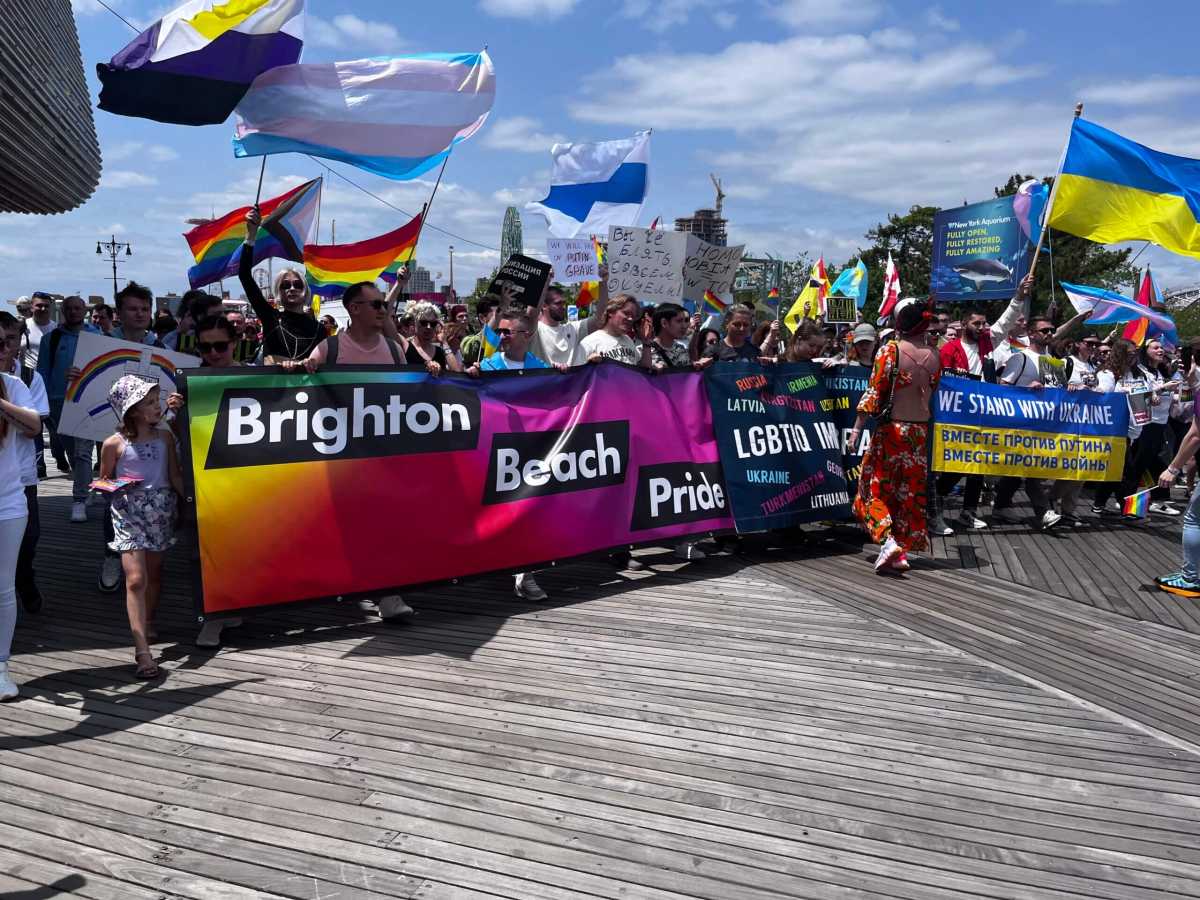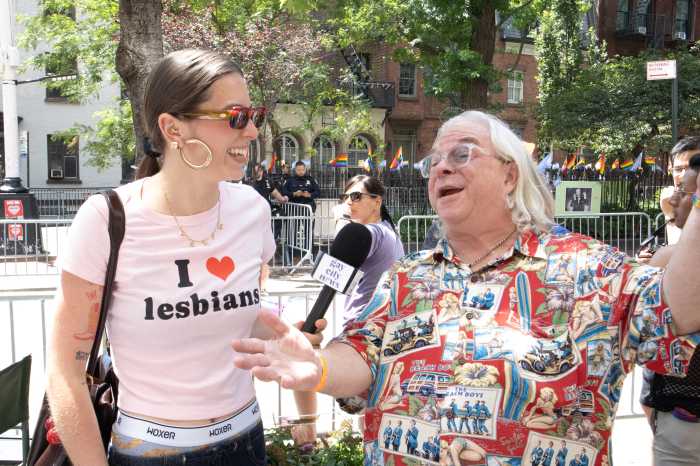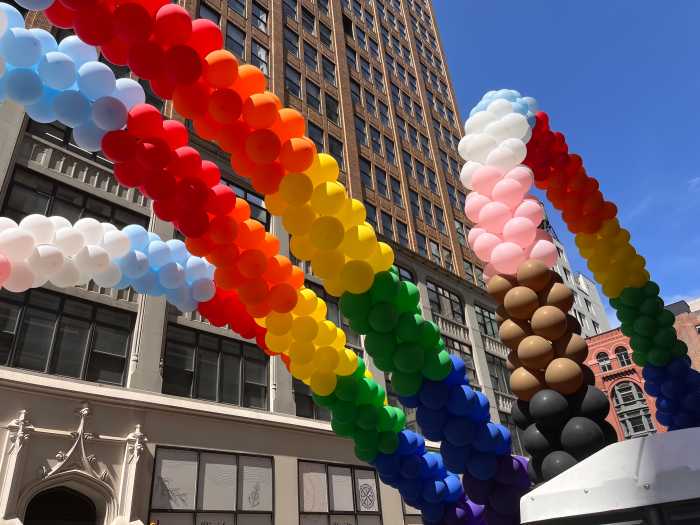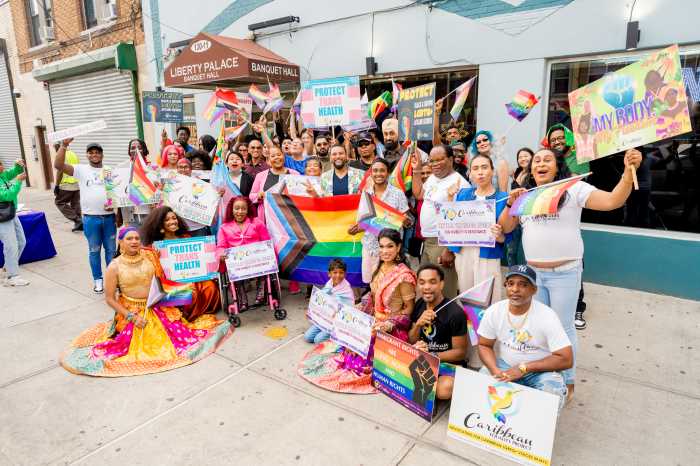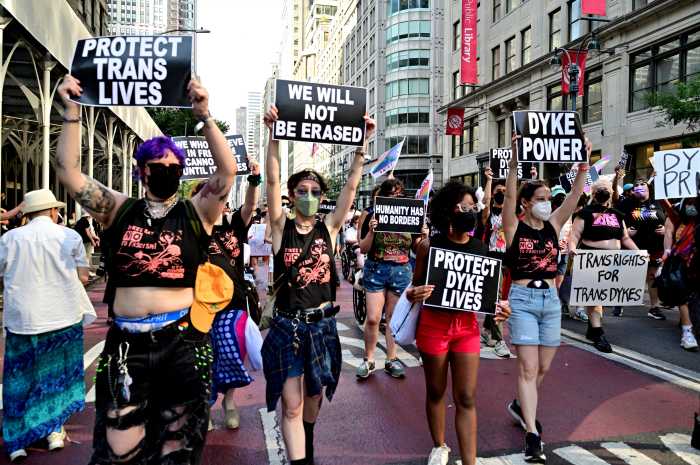They condemned homophobia and transphobia in Brighton Beach. They hurled chants against Russian President Vladimir Putin. They spoke up for democracy. They condemned Russia’s war in Ukraine — sometimes with expletives for emphasis.
There are some things that never seem to change at the annual Brighton Beach Pride March — now in its seventh year — and that’s what makes the grassroots event such an integral part of Pride season for the members of RUSA LGBTQ+, which is a network of Russian-speaking individuals and others from parts of the former Soviet Union.
But a key change took place last year when Ukrainian Flags emerged as a centerpiece of the march and solidarity with people of Ukraine became a core message in the wake of Russia’s prolonged war against its western neighbor. The shift in focus made sense not only because of the war, but also because southern Brooklyn — which is known for boasting a sizable share of Russian expats — has a significant Ukrainian population, as well.
Marchers stepped off in Coney Island on May 21 and barreled east along the Riegelmann Boardwalk, where participants hoisted Rainbow Flags, Trans Flags, Ukrainian Flags, and flags representing other countries, such as Uzbekistan; held signs; and chanted messages supporting LGBTQ rights and condemning the war. The event coordinator, Maxim Ibadov, commanded the energetic march to the tune of a drumbeat.
“Say no to fascism,” “Putin is a war criminal,” “Brighton Beach, can you hear us?” and “This is what democracy looks like” were among the top chants.
One sign read, “We will rave on Putin’s grave.” Another sign, this one featuring a hand-drawn Rainbow Flag, stated, “Stop war. Make peace.” And a small but meaningful sign offered a message to the entire neighborhood: “Trans rights are human rights. Stand with Brighton Beach Pride.”
Families, couples, and people of all ages stopped to snap photos, film videos, and watch along as marchers proceeded past beach-goers, diners at seaside restaurants, and pedestrians on the boardwalk. Many spectators cheered along, some looked on with curiosity, and a select few scowled in disgust as the march grew closer to Brighton Beach, where participants held their usual post-march rally featuring a slate of speakers.
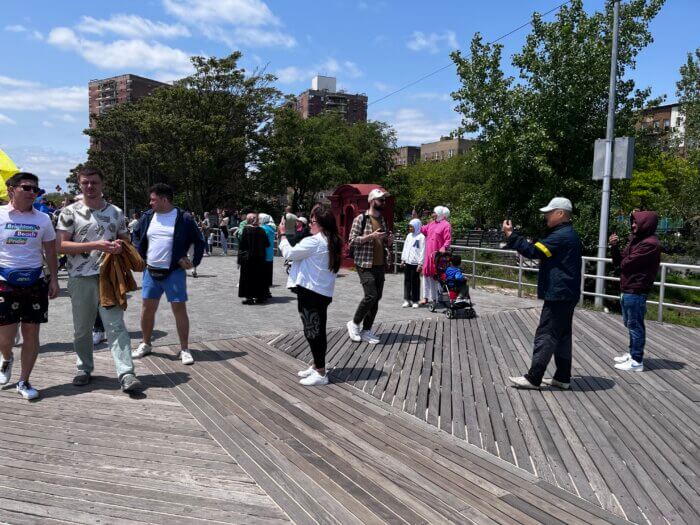
The southern Brooklyn community, known to elect conservative leaders to local office, is not as welcoming to the LGBTQ community as some other parts of New York City — and that was one of the motivating factors behind the annual march, which was co-founded by Lyosha Gorshkov, who fled from Russia, and Yelena Goltsman, who was born in Kyiv and left Ukraine — then part of the Soviet Union — in her 20s.
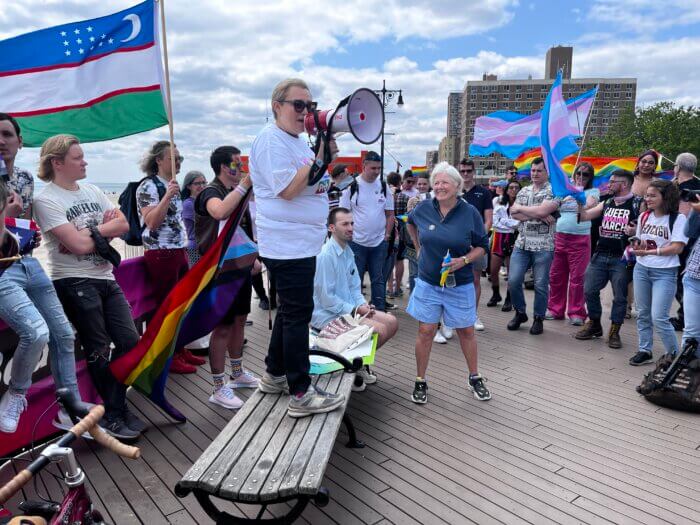
“The way Brighton Beach Pride started was that there was an influx of LGBTQ refugees from Russia after the first round of anti-gay laws was passed in Russia, and a lot of them landed here in Brighton Beach and encountered a lot of homophobia and transphobia,” Masha Gessen, a prominent trans and non-binary Russian journalist, told Gay City News. Gessen — who delivered remarks to the crowd in Russian — was referring to Russia’s notorious 2013 anti-LGBTQ law that erased queer people from public life and led to widespread crackdowns on members of the community. The Russian government’s treatment of LGBTQ people has only grown more harsh during the war.
Goltsman also struck a reflective tone as she sought to summarize the progress RUSA LGBTQ+ has made in the neighborhood since the first march in 2017. Earlier this year, the organization announced it became an established non-profit.
“At the first Brighton Beach Pride, we were not sure how people would take it,” Goltsman told Gay City News. “I think people now in Brighton Beach actually expect us to come and we feel like we have less people protesting us and saying bad things to us and more people supporting us in the community. We are teaching people to be more tolerant to understand we are part of their community and we won’t be going anywhere. We’ll be here next year as well.”
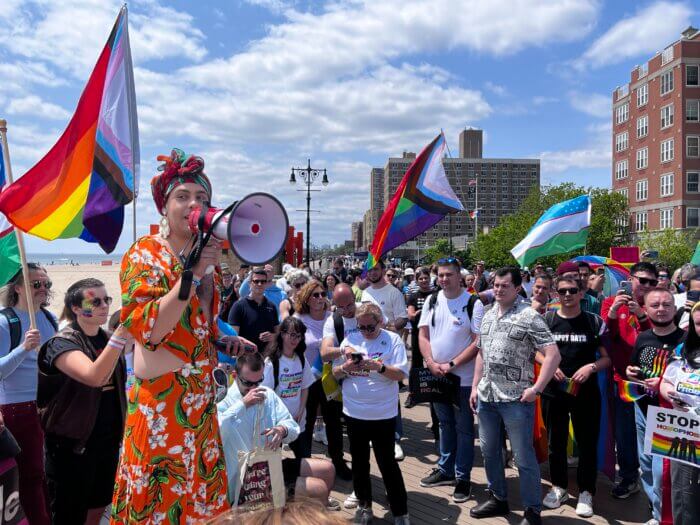
Goltsman said RUSA LGBTQ+ has long provided mutual aid to asylum seekers and other members of the community facing urgent needs, but she stressed that the war in Ukraine caused an uptick in demand for assistance. The most common request, she said, is for legal services for immigrants, but RUSA LGBTQ+ also provides assistance with shelter, translation, and other needs.
“There is a huge influx of people who are coming not just from Ukraine,” Goltsman said. “People, for example, from Russia — it was tough to be an LGBTQ person in Russia before, but now it’s suicidal to be there. People are just running for their lives.”
To that point, Gessen noted that Ukraine has at least demonstrated some progress on LGBTQ rights and practices democracy, whereas “in Russia, in Belarus, and elsewhere in the region,” anti-gay policies are prompting more people to flee.
“It is not an accident that there is a new influx of LGBTQ refugees coming in,” including from Russia, Gessen said. “There is a real connection between so-called traditional values in the name of which Putin is waging this genocidal war in Ukraine and the anti-gay laws in Russia and the anti-trans laws and anti-drag laws and bans in this country.”
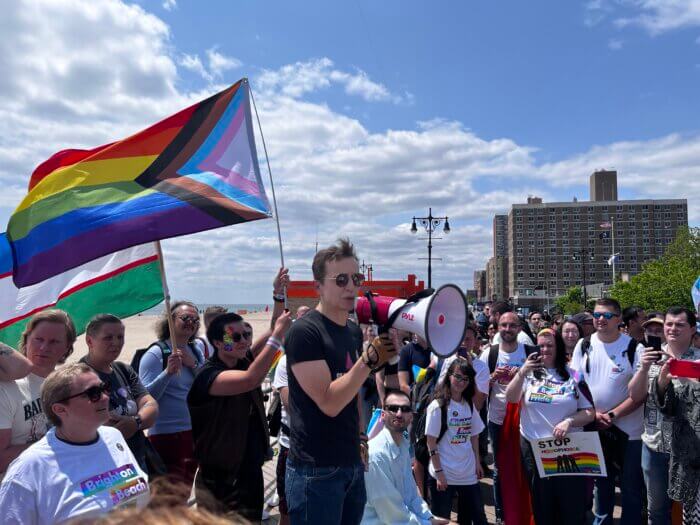
They added, “It is up to us, the people who actually experienced repression firsthand, [to say] yes, this is how it works, and this is how it happens here.”
The war has also, in some ways, stirred tensions between Ukrainians and Russians. Gessen’s name was in the headlines in the days preceding the march after they stepped down from the board of directors at PEN, which promotes literature and supports writers, because the organization nixed an event about writers in exile at its upcoming festival due to pressure from Ukrainian activists who did not want to participate in events alongside Russians.
“The Ukrainians didn’t want to be part of the same festival as Russians, which was their right and I don’t blame them for taking that position,” Gessen said. “I do blame PEN.” Gessen, who arrived to the event via bicycle, said they did not think someone should be disinvited because someone didn’t want them to speak.
On this day, though, immigrants from across eastern Europe — as well as locals standing in solidarity — were well-represented at the march and came with a shared vision of promoting LGBTQ rights. The diversity of Russian-speaking populations and eastern European countries was on display on one of the leading banners, which listed over a dozen countries represented by RUSA LGBTQ+.
At one point during the rally, attendees were asked if it was their first Brighton Beach Pride — and many hands immediately shot up in the air.
Among others, the march also attracted New Yorkers from across the city, including Matthew McMorrow, the deputy director of constituency affairs for Governor Kathy Hochul, and longtime LGBTQ activist Ann Northrop, co-host of Gay USA.
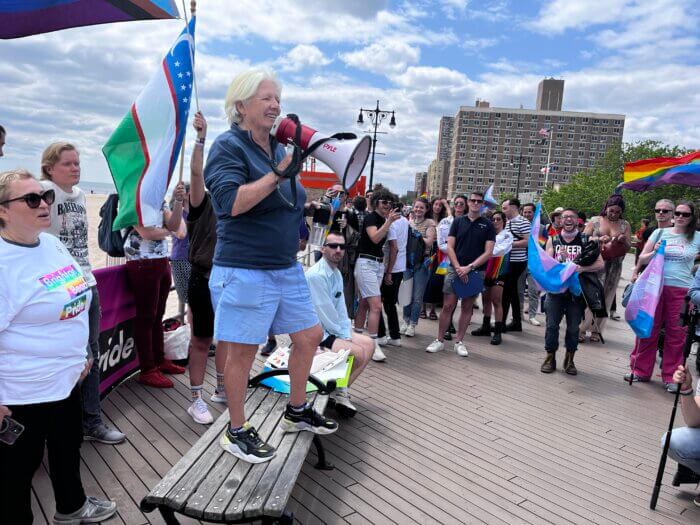
“What is going to change the world, what is going to win, is grassroots action,” Northrop said. “Not depending on the government, which lies and cheats and abuses everybody and is just there to keep themselves in power. It is grassroots action that will make a difference. I am old enough to remember how grassroots action by people in the streets ended the Vietnam war, created women’s liberation, created all the movements we have seen… it is people in the streets, the critical mass of people in the streets.”
Following the conclusion of the march and rally, participants turned back to Coney Island for an afterparty at Coney Island USA.

